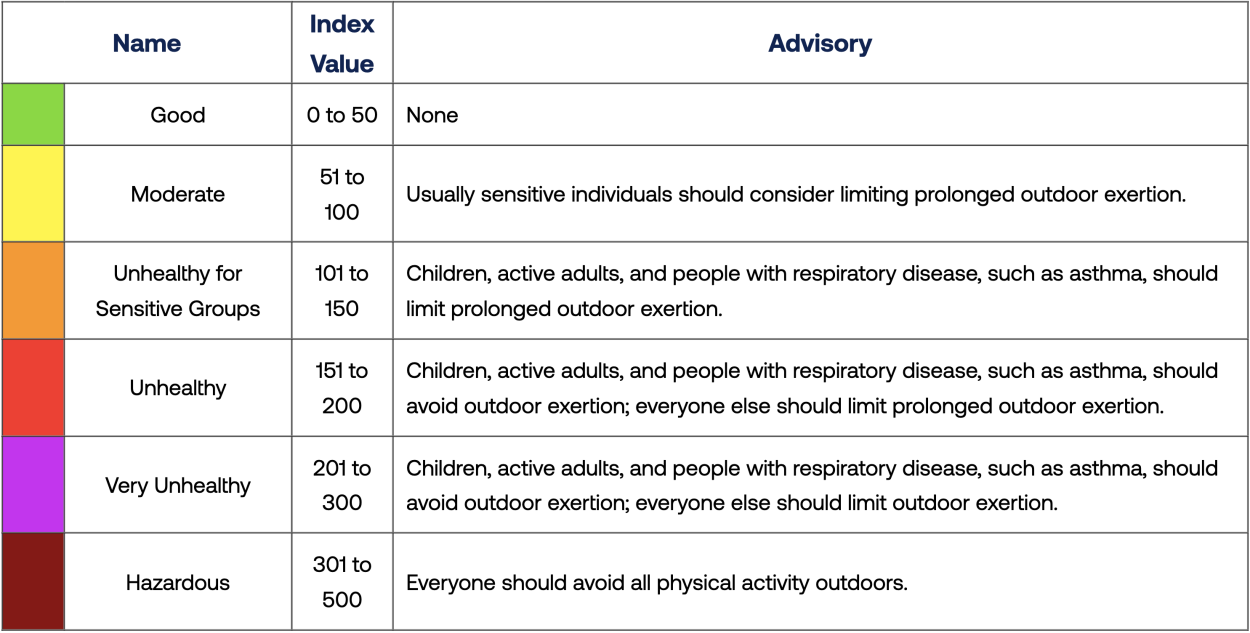
2025-03-10T14:24:39
What is Walking Pneumonia and Why are Cases Rising?
- Family Medicine
- Pulmonology
February 2, 2024 | Pulmonology
Specialties:Pulmonology (Respiratory Care)

If you live in Utah, you probably know the feeling of looking out at a bleak, grey sky during the dead of Winter. As it turns out, this weather event – known as an inversion – is not only melancholy but also potentially harmful to your health.
According to the Utah Department of Environmental Quality, inversions occur when cold air gets “trapped” near the ground surface underneath a layer of warm air that acts like a “lid.” This is especially common in the winter because snow-covered valley floors reflect rather than absorb heat. This leads to pollutants becoming trapped near the ground, resulting in poor air quality.
But even if you don’t live in an area prone to inversions, it’s important to understand how air quality affects your health, particularly if you are a member of a vulnerable population. Read on for more information about how you can protect your lungs when the air quality is poor.
Air quality is generally measured via the Air Quality Index, or AQI. The color-coded system (shown below) is what most organizations will use to warn you when air pollution is dangerous.
The AQI tracks ozone (smog) and particle pollution. Tiny particles in the air can come from smoke, power plants and factories, vehicle exhaust, and other sources. Keeping track of the current air quality information in your area can help you take steps to protect yourself, your children, and others from unhealthy levels of air pollution, according to the American Lung Association (ALA).

Source: American Lung Association
When you breathe in polluted air, fine particles can enter your bloodstream and travel throughout your body, impacting your cells and vital organs. Side effects of long-term exposure to bad air quality can include:
“For those with lung diseases like asthma or COPD, bad air quality can increase symptoms such as cough, chest tightness, wheezing and increased shortness of breath,” said Christopher Gessel, a nurse practitioner specializing in pulmonology at Revere Health.
The ALA warns that poor air quality can affect anyone, even those who are healthy. However, groups at increased risk due to poor air quality include:
If the day’s air quality forecast is code orange or worse, adjust your plans for the day, the ALA suggests. Limit activity outdoors to 30 minutes or less because the health effects of pollution are worsened over extended periods of exposure. If the air quality is maroon or purple, you should try to stay indoors as much as possible.
Other things to consider:
Rethink exercise: If you do exercise outdoors on a bad air day, Gessel suggests doing activities that result in less rapid breathing, such as walking but not running. Avoid prolonged outdoor exertion near busy roadways because the traffic can create high pollution as far as one-third of a mile away.
Wear the right mask: If you must be outside on a bad air quality day, wearing an N95 mask would be advised, said Shawn Hill, a physician assistant who also specializes in pulmonology at Revere Health. A N95 pollution mask blocks against 95% of fine particles. Your mask should have a high-quality seal and adjustable straps for an airtight fit. Paper, surgical, and cotton masks are largely ineffective against particle pollution.
Keep your inhaler handy if you have asthma:
People with lung problems may need their rescue inhaler more on bad air quality days,” Gessel said. “Using your inhaler medications as prescribed by your healthcare provider is always advised.
Protect yourself while driving: Close your windows when you’re in traffic and set your ventilation system to recirculate the air to avoid breathing vehicle exhaust. Choose driving routes that are less traveled, especially by diesel vehicles.
Avoid exposure to pollutants: Keep away from wood smoke, vehicle exhaust, tobacco smoke, and other sources of airborne particles, where possible. This includes not burning trash or wood.
“There are air quality tracking websites that allow people to monitor air pollution and make better informed decisions about going outside,” Gessel said.
Government websites for monitoring air quality are:
Smartphone apps you can download to monitor air quality include:
If your lungs or sinuses have been affected by polluted air, there are several things you can try to ease symptoms:
Seek expert help – If you are struggling with a consistent respiratory condition, Revere Health offers Pulmonology services in Provo and Salem to help you breathe easier. Contact an office today to schedule an appointment.

WRITTEN BY:
Tom Betar
Tom Betar currently serves as Revere Health’s Communications Manager. Tom earned his bachelor’s degree in Communications from the University of Utah where he studied print journalism and marketing. Tom focuses on producing written content in a variety of formats and developing strategy for both internal and external communications at Revere Health. His professional work experience includes email marketing, social media management, news writing/reporting, and content creation. Outside of work, Tom enjoys traveling to his hometown of St. George as well as playing basketball and going to concerts/plays with his wife.

2025-03-10T14:24:39

2024-11-06T09:40:56

2021-11-29T16:31:04

2019-12-09T16:32:09
This information is not intended to replace the advice of a medical professional. You should always consult your doctor before making decisions about your health.